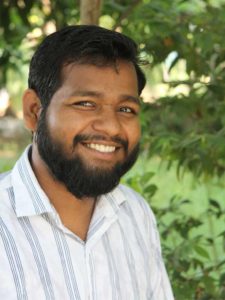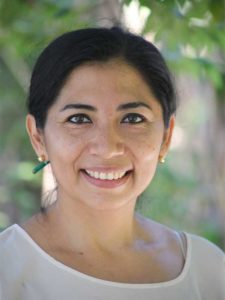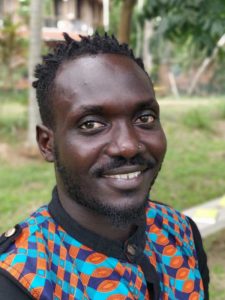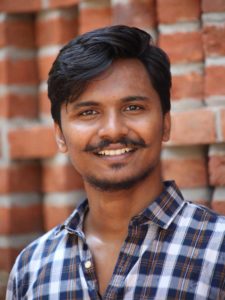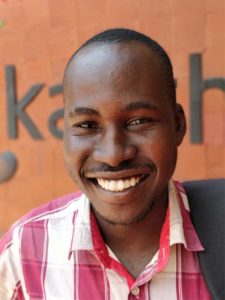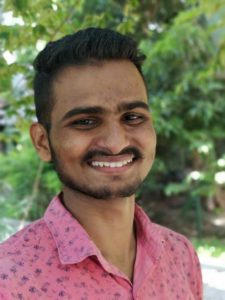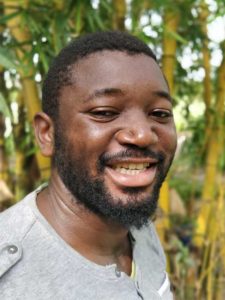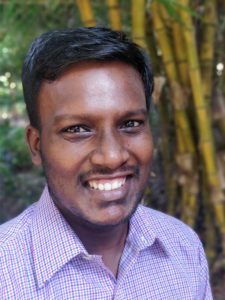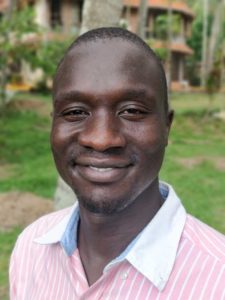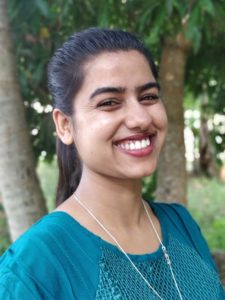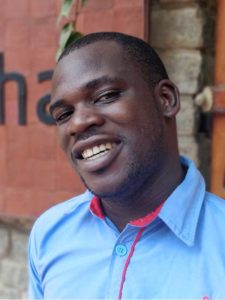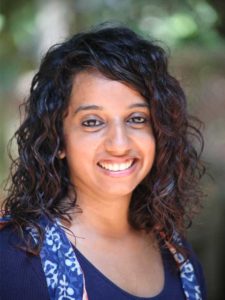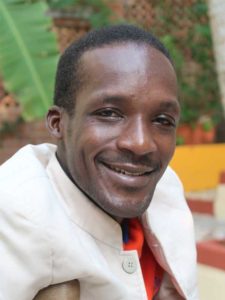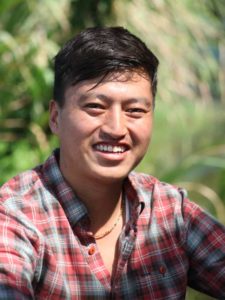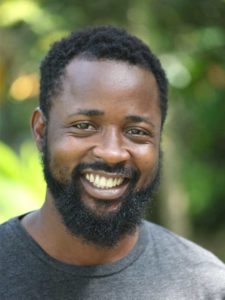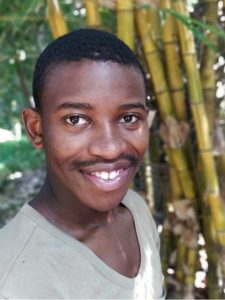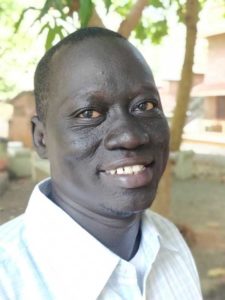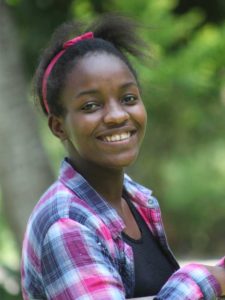Akhilesh Sharma, India
yantra daan foundation
Growing up under many financial constraints, Akhilesh still managed to make it through college. He worked as a newspaper delivery boy to manage his school fee and college as well. He is an enthusiast learner, believing in empowering youths and himself as well. He learnt that if every young person has the right resource to access the digital platform, they can connect to the world, they can learn from internet and can open an informed career opportunity for themselves. That's why he founded the Yantra Daan Foundation. YDF focuses on redistribution of used but still working electronic devices such as laptops, tablets and smart phones to marginalized children/youth who are currently missing out on access to education. The main focus in on children/youth who are living in the slum of Sanjay Colony in New Delhi.
http://yantradaan.org/
Carolina Ortiz Ardaya, Bolivia
Centor Colibri Bolivia
Poverty in Bolivia affects around 60% of the population, mainly women, children and indigenous communities. During the Covid 19 pandemic in Bolivia, statistics indicate that progress in the fight against poverty went back 10 years. The situation of violence has tripled, with the most affected being children and women.
75% of women face different kind of domestic violence. Carolina, together with Centro Colibri and social actors, works with this vulnerable population with the goal to reduce these numbers. Through counseling, sensitization on violence especially for young people, as well as comprehensive training in different topics she empowers women from low-income sectors who have little or no education. The tools used are education and skill training that lead to economic resources. The process includes a holistic way of personal encounter and improving their self-esteem.
http://www.centrocolibribolivia.org/
Watch Carolina's kanthari TALK here
Emmanuel Otim, (28) Uganda
Being an artist, Emmanuel uses creative and performing art as a medium to advocate for, inspire, empower and heal the hearts and minds of homeless children. This includes skills development, capacity building, counseling and guidance and above all occupational therapy.
Prasad Thete (22), India
Disagreement about expectations set by his parents made prasad leave home at an early age. Prasad always was looking how he can contribute to society in an impactful way. On a journey to find himself, he got inspired by a few architects who worked on cost effective architecture using Eco-friendly locally available resources for a rural population in Maharashtra. Prasad wants to promote learning/skill training for people in rural areas to construct cost effective housing which will generate employment, thus setting them on the path of being a sustainable village.
Faruk Musema, Uganda
Ability Sports Africa
In Uganda, due to many years of civil war, the rate of disability is very high. Faruk is passionate about sports and his goal is to empower children and youth by running adaptive sports and physical literacy programs. His goal is to change the society's negative attitude towards people with disability as well as building confidence and self esteem in disabled children and promoting social inclusion in school, community and refugee resettlements.
ability sports africa Watch Faruks' kanthari Talk here
Siddhesh Sakore, India
AGRO RANGERS
Growing up, Siddhesh witnessed the misery and poverty which seemed to be the inevitable fate of a farmer in Maharashtra. The combination of economic crisis, the use of toxic chemicals that lead to unsustainable farming methods, as well as the effects of climate change form a heavy burden. Often so heavy that it becomes unbearable. For many farmers, struggling financially and facing serious health issues, suicide seems to be the only way out.
With his organization AGRO RANGERS, Siddhesh is working on technical as well as methodical organic farming solutions that will ensure that farmers and their families have a future. He is practicing regenerative farming to rejuvenate the soil and the environment. Till date he has trained 200 youngsters in regenerative agriculture practices. Additionally, AGRO RANGERS monitors 25 farmers to grow vegetables organically and guids them in all technical aspects. This group of farmers is connected directly with more than 150 consumer families in Pune which leads to increased sustainability.
www.agrorangers.org
Joshua Njeke Egbe, Cameroon
Peace Crops
Njeke Joshua Egbe from Cameroon grew up in an orphanage in a poor rural area and firsthand experienced the consequences of malnutrition. This inspired him at a very young age to start setting up food gardens for local orphanages. When the civil unrest started in Cameroon in 2017, he had the idea of using organic farming as a peace-building tool. Upon return from kanthari at the end of 2019, Joshua founded Peace Crops. To date, he worked with many rural affected war communities, orphanages, schools, and other entities to practically carry out agriculture projects. His rehabilitation and correction projects aim to equip displaced orphans and women with the knowledge needed to combat unemployment, hunger, and to stop the ongoing conflict.
http://www.peacecrops.org/
Ragunath Veeravel (34), India
Growing up in a farm, I enjoyed nature to the fullest. One day, everything changed. Forests were cut to make space for factories. The river I used to swim in got polluted and the ground water became undrinkable. 30 years later, i got a request to sign a petition against the construction of a four-lane highway through the Auroville forest. This triggered me to stand up and start to work on afforestation.
Yasinto Oyat (32), Uganda
Uganda's civil war resulted in many children losing their parents. Metal waste is not much recycled in his community; therefore, Yasinto will provide vocational training to build the capacity of young orphans by teaching them modern techniques in recycling scrap metal materials into products that help disabled people, such as ramps for wheelchairs and other aids.
Lalita Singh (25), India
Lalita faced gender inequality that drove her to stand up and start an own venture to empower women and create awareness about their rights, promoting education for girls, safe hygiene practices, health and advocating against gender discrimination.
Emmy Matuga, (25) Uganda
When his mother became disabled, Emmy experienced the hardship, psychological trauma, stigma and discrimination she had to go through. Witnessing this worked as a catalyst for Emmy to empower women.
His goal is to provide entrepreneurial skills, skill development in book-keeping, business management to women and children with disabilities and creating awareness towards safe and hygienic health facilities.
Meghana Raveendra, India
moringa
National Crime Records Bureau state that one student commits suicide every hour in India. As a child and adult who deals with anxiety because of fear failure, Meghana realized that there is a pressing need to transform the current mainstream education to be more inclusive and focused on learning. Therefore, she started her organisation Moringa which aims to bring this transformation by providing children with skills where they can take charge of their own learning at the same time access needs of intervention across India to bring a systematic transformation in education.
Since 2019 Meghana has worked with 23 children, conducted focus group discussions to understand various mindsets and challenges people face in addressing issues related to education and conducted a survey to understand their experience of schooling and what would they do today to make it different.
http://moringas.org/
Sunday Olyel (31), Uganda
Sunday started an organization with the name PESA which stands for Persons with Special Abilities.
PEAS empowers people from the margins of society, both persons with disabilities and the non disabled by providing skills training in Gulu City, In Northern Uganda.
Training course are provided in audio production, video and photography, welding and metal fabrication, fashion and design, catering, arts and crafts, electronic engineering, motorcycle repair and maintenance, and agribusiness.
The one year curriculum is divided into three stages; Learning- , Experiencing- and implementing-stage.
Right from the time when the government of Uganda declared lockdown in March 2020 to date, PESA has been training People with Disabilities with skills in making cleaning detergents, hair and body care products. This offered an opportunity to earn livelihoods as the products are on high demand. Till date, PESA trained 77 people.
Norbu Lhagyal (24)
Being a refugee who does not know what his future will look like, Norbu wants to work on an open society in which people are not afraid of taking risks, and where there is a solution-oriented mindset. He wants to provide skills to today’s children to adapt to a rapidly changing world by hosting experiential learning workshop for schools to empower children to take charge of their own futures.
Olubodun Akinyele (36), Nigeria
Ayiti
Olubodun grew up in Bariga, a dangerous neighborhood in Lagos State.
He first hand witnessed a lot of violence and on a daily base he learn what it is to be harrassed by the miscreants and hoodlums.
Poverty was not his families only problem; they were helpless and hopeless. These experiences in his youth inspired him to start Access for Youths to Information Technology Initiative (AYITI) providing underprivileged children and teenagers of Nigeria with computer programming skills and coding.
The goal of this project is to see children from extreme poverty between ages 9 years to 13 years to have increased knowledge, skills and awareness on how to use computer programming in ethical way to create social impact, as against taking to cybercrimes. 25 children have been impacted till date.
http://ayiti.ngo
Keith Ndlovu (24), Zimbabwe
Being a member of the LGBTIQ+ community Keith moved from Zimbabwe to South Africa. To strengthen the rights, self-confidence and means for financial independence, he wants to create a space of empowerment and development for migrant LGBTIQ+ members. His program provides psychosocial support, counseling and livelihood skill training.
Wurok Chan (42), South Sudan
In order to save his life, Wurok had to flee from his country. Now his goal is to reduce violence among vulnerable communities in South Sudan by providing education about legal support as well as awareness on peace building (Transformation and Empowerment). Wurok works for a civil community that respects human dignity and fixes socio-economic and political imbalances in South Sudan.
Samantha Mudiriro, Zimbabwe
Wangu
Samantha Mudiriro grew up in an orphanage in Zimbabwe from the early years of her life until she was 24.
Samantha started an organization called Wangu. Wangu works with orphans and vulnerable children. They have set up the community "Ghetto Connect library" where children get books to read, nurturing of talent and helping drop out children to return back into school through payment of their fees.
Wangu has reached 30 children as yet and paying for 5 children's school fees.
More info can be found here

